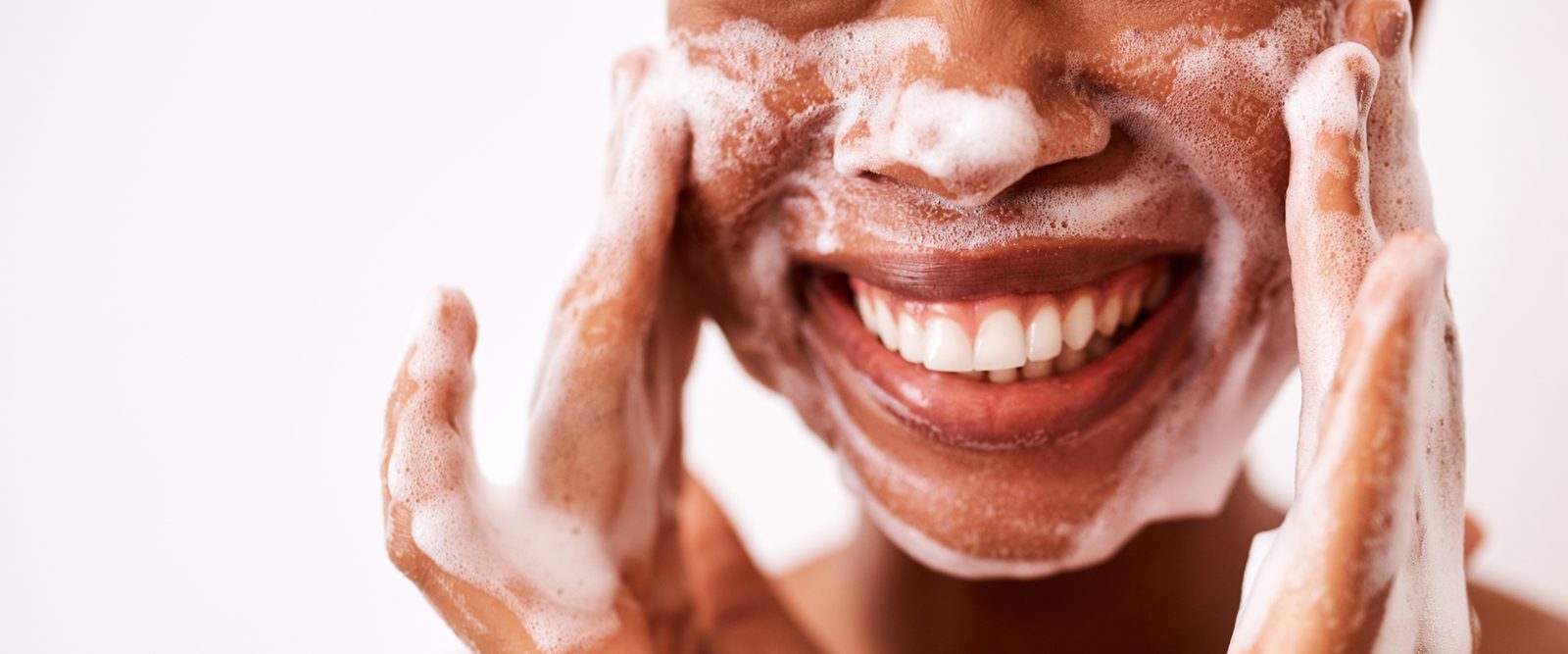A Guide to Skincare for Every Age
A dermatologist breaks down the basics on how to care for your skin at each stage in life.

Just as your nutritional needs and exercise habits may evolve as you grow older, so should your skincare regimen. And while it might be tempting to reach for every new product that claims to zap acne or smooth wrinkles, keeping your skin healthy doesn’t have to be complicated or expensive.
“For the most part, your skin takes care of itself,” says Dr. Lindsey Bordone, a dermatologist at NewYork-Presbyterian/Columbia University Irving Medical Center. “You don’t need an elaborate, 10-step skincare routine to have healthy, clear skin.”
To learn more, Health Matters spoke with Dr. Bordone about how to nourish and protect the skin at each phase of life.

Dr. Lindsey A. Bordone
Skincare for Infants and Children
“Skincare for babies and young children should be kept to a minimum,” advises Dr. Bordone.
The FDA does not recommend using sunscreen on infants younger than 6 months old, due to their sensitive skin; the best form of protection at this age is to keep them out of direct sunlight.
Once they’re a bit older, however, Dr. Bordone says children should wear sunscreen with an SPF of 30 or higher when spending time outdoors. For cleansing, stick to mild unscented bar soap and gentle products, like creams or balms that include colloidal oatmeal (a special type of oatmeal that soothes and protects babies’ skin).
Skincare for Adolescents and Teenagers
Once children begin puberty, they may need to adjust their skincare routine. In these years, the skin produces more sebum, which means the skin becomes oilier and may be more prone to acne. To treat acne, Dr. Bordone advises washing with a cleanser containing salicylic acid or benzoyl peroxide and, as a spot treatment, dabbing on an over-the-counter retinol or sulfur cream to help dry out the area.
If acne persists, Dr. Bordone recommends making an appointment with a dermatologist, as prescription medications might be necessary.
Teenagers should also begin applying a facial moisturizer and sunscreen with an SPF of 30. The American Academy of Dermatology advises wearing sunscreen every day, year-round whenever you go outside, even if it’s cloudy. Dr. Bordone points out that everyone can get skin cancer; while the risk may be lower in people who have darker skin, they should still use sunscreen daily.
“On a normal day, you can use a moisturizer that has SPF in it and don’t necessarily need to reapply,” she says. “But if you’re at the beach, for example, you would want to use regular sunscreen with an SPF of 40 or more and reapply every hour.”
And while adolescents, or “tweens,” might be tempted to begin using chemical exfoliators, Dr. Bordone advises against it.
“Adolescents have very youthful, sensitive skin, so products that contain active ingredients such as retinol, hyaluronic acid, and salicylic acid can be irritating,” says Dr. Bordone. Some active ingredients might even make skin more sensitive to the sun, so it’s especially important to be diligent with SPF.
Skincare for Adults
In your 20s and 30s, Dr. Bordone recommends sticking with a simple skincare routine: Continue with daily sunscreen and treat acne the same way you would in your teenage years.
If your skin tolerates it, a retinol serum can help with fine lines and wrinkles. Retinol, a synthetic Vitamin A, prompts skin turnover and decreases oil production. It can be used to treat acne, and used as a light chemical peel. It can be effective with consistent use over time, but you should follow with an application of moisturizer since retinol can be drying.
For those with already dry or sensitive skin, using a retinol product might be irritating or cause eczema.
“In most cases, I wouldn’t recommend starting a retinol serum before your twenties, as it would likely be too irritating,” she says. “If your skin becomes red or peels, it might not be right for you.”
As skin matures, Dr. Bordone says it’s important to continue sunscreen use, eat well, avoid smoking, and exercise regularly to get blood flow to the skin. “Getting an adequate amount of sleep is also crucial for overall health,” says Dr. Bordone. “Lack of sleep can make your stress hormones go up and cause dry, dull skin.”
If you’re experiencing sunspots and fine lines and your skin doesn’t respond well to retinol, look to Vitamin C: Serums with vitamin C can help even out skin tone and diminish dark spots; they also have a protecting antioxidant effect. Another option is oleic acid, a brightening agent that can be found over the counter.
To care for the delicate skin around the eyes, a specialized eye cream can help hydrate and temporarily decrease the appearance of wrinkles in the area. You can also try using a mild retinol around the eyes (just be careful to avoid getting any in the eye). But Dr. Bordone warns that this area is extremely sensitive, and to stop using if irritation occurs.
Keep in mind that as you age, your skin becomes more delicate, says Dr. Bordone. So go easy on the scrubs and chemical exfoliators. For women who are in menopause, hormone-induced oil production decreases, and you may need to moisturize more frequently.
No matter your topical skincare routine, remember to get your skin checked regularly with a dermatologist to assess blemishes and potential signs of skin cancer. And remember: Lifestyle habits like a whole food diet, good sleep, and exercise can all contribute to maintaining a healthy glow.
Additional Resources
Learn about the signs and symptoms of psoriasis from an NewYork-Presbyterian expert on Everyday Health.

